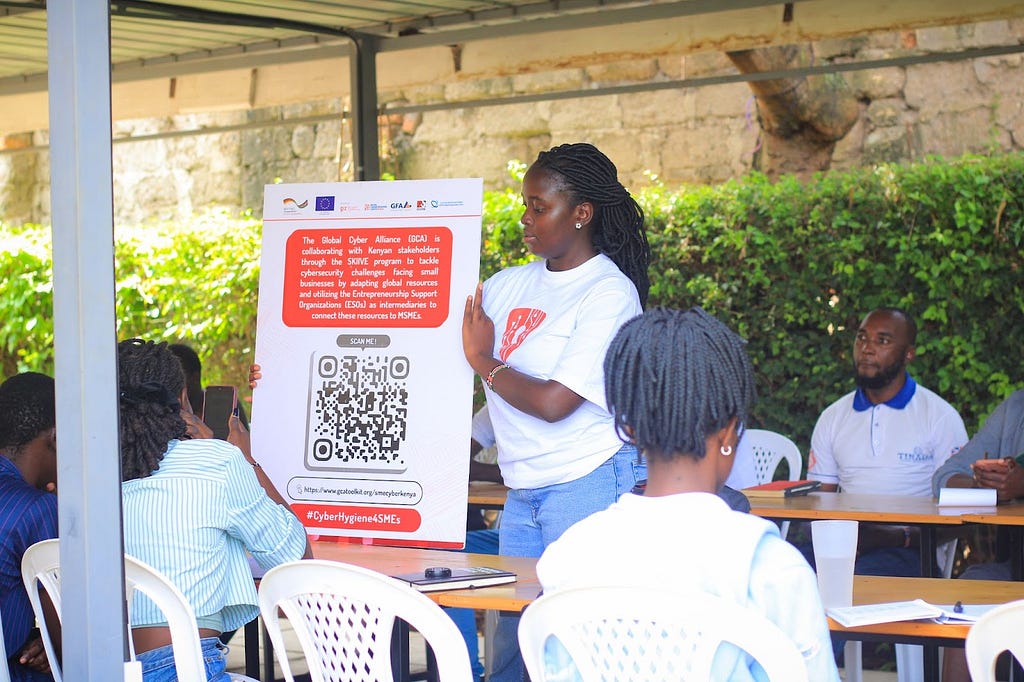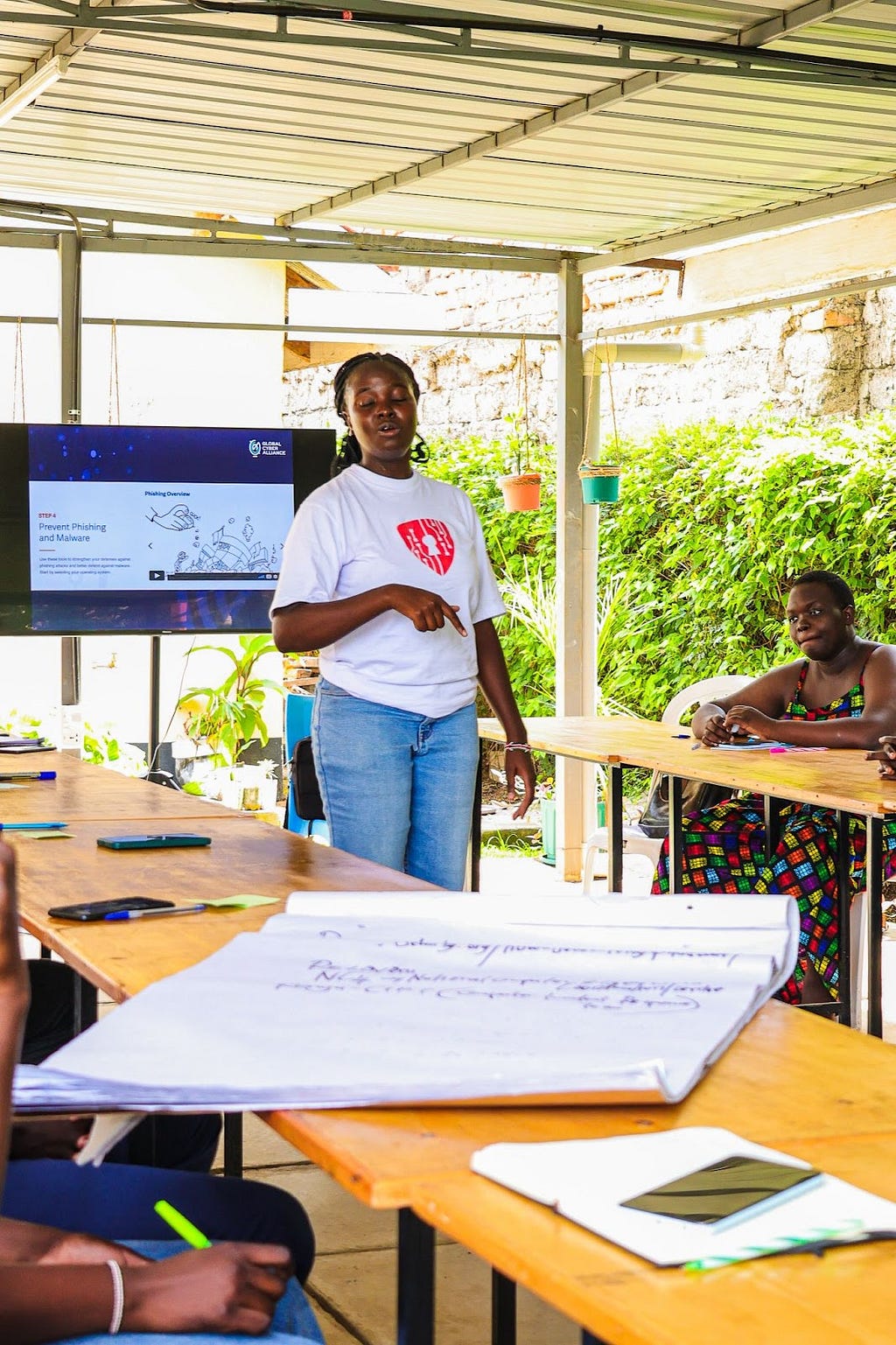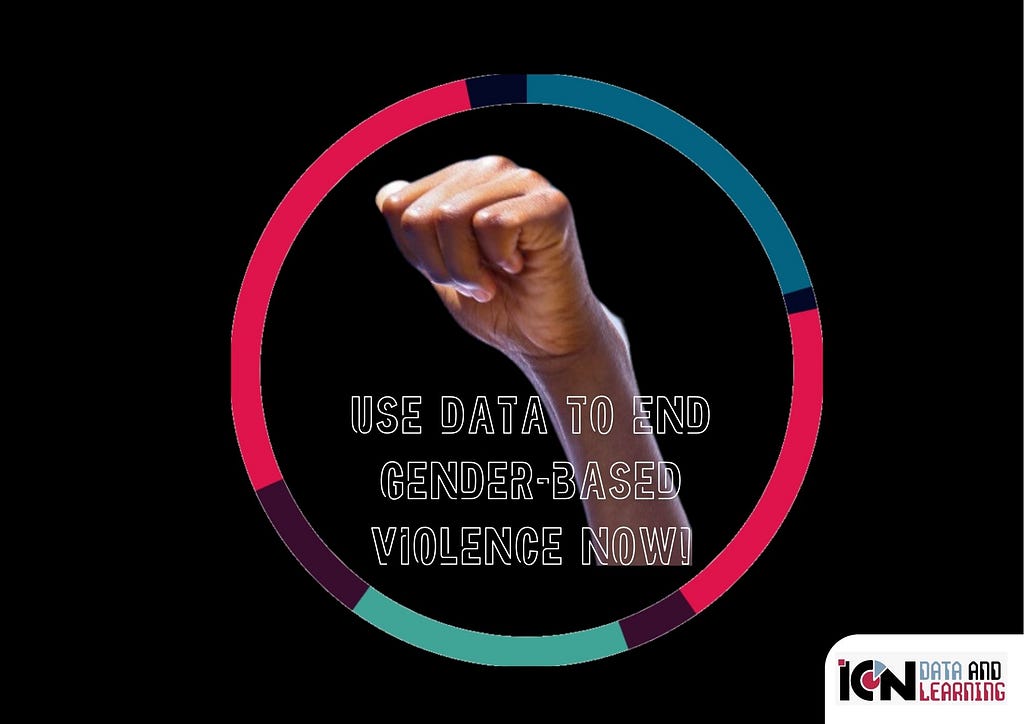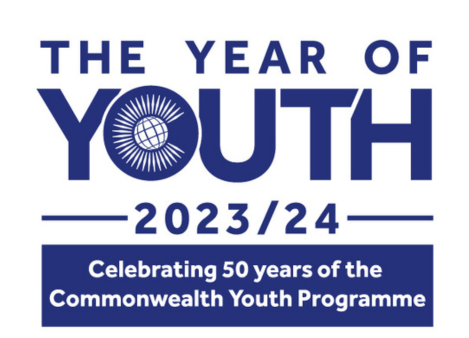Safeguarding the Digital Frontier: One Woman’s Mission to Secure Youth Entrepreneurs and Young People in The Lake Region
Story by Mary Adhiambo

“Most victims of the hacks attested that they had a difficult time in regaining access to their accounts even after contacting the official Help Centers”
In an increasingly digital world, technology has become a part of existence in our daily lives as we use digital devices for communication and work. However, the existence of digital threats are inevitable, making us as digital users all potential victims of the various forms of cyber crime. In the goal to create cybersecurity awareness, GFA conducted a 2-day trainer-of-trainees cybersecurity workshop in which I was privileged to be part of; representing ICON Data and Learning Labs. The workshop was supported by GIZ Kenya and the European Union through ASSEK, and the Association of Countrywide Innovation Hubs. The training was insightful, educational, and marked the start of my journey towards becoming a cybersecurity trainer to empower SMEs, Startups, CBOs, and individuals.
I am excited to be part of this transformative journey as it has been both thrilling and exciting. Despite my career background having been developed outside the tech world, it made me realize how important this type of education is and how many people need awareness about cybersecurity and the need to conduct trainings to reach a larger target audience.
During the trainings, I introduced the young enterpreneurs and youth to the Global Cyber Alliance cybersecurity toolkit and how to be secure from digital threats in line with the laid out six steps. The most exciting part of the six steps for the participants included;
- Beyond simple passwords
- Protection of our emails and digital reputation
These steps were notably insightful due to how they defined how easily one could be breached, for instance, beyond simple passwords defined the need to have different passwords for every account, how to create strong passwords, and even how long it could take to crack your password, which participants found to be relatable and enlightening.
The other step about protecting our emails and digital reputation was also as exciting, as most of the participants use emails for personal and formal communication. Email addresses hold crucial information hence the need to protect them.
Overall, all the steps were exciting and sparked more conversations. Additionally, other issues that came up also highlighted;
- Email Recovery for Lost Account/Forgotten Password
- Hacked WhatsApp Account Recovery
- Lost Facebook Account Recovery
These issues were raised by most participants as most of them had been victims, especially for compromised or hacked social media accounts such as WhatsApp and Facebook. Most victims of the hacks attested that they had a difficult time in regaining access to their accounts even after contacting the official Help Centers.
However, the participants learnt of the loops they had created for the hackers and how they could further prevent similar occurrences by creating strong passwords and using 2-Factor Authentication (2FA) on all of their social media platforms. They also learnt the need of having a recovery email address attached to the personal email for easy retrieval in case they forgot the password to the main account.
“Learning never exhausts the mind”

While indulging in the trainings, I also learnt of how many participants perceived the topic of cybersecurity negatively and thought of it as a complicated topic left out for tech gurus. In addition, the training changed the mindset of most participants and they became aware of better methods to be cyber secure.
Overall, the participants were receptive to the training and they were glad to have been part of it. As technology evolves on an everyday basis, and the more we advance our devices in a similar way, the more cyber criminals also develop new ways of attacking the platforms therefore there is a need for an increased personal initiative to have awareness training on cybersecurity. This can be achieved with the GCA toolkit which is free and has educational resources. Organizations, including CBOs, can also opt to have a department specifically focusing on data security.






